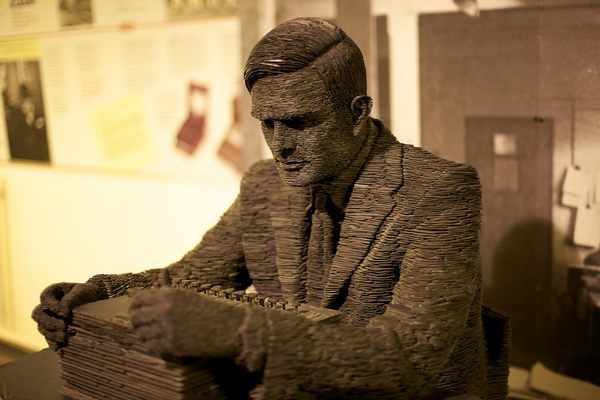Found: A Special, Mind-Bogglingly Large Prime Number
It’s more than 23 million digits long, if you’re counting.

Many wondrous finds are tangible: You can pluck a bottle from the waves or brush soil from a pottery sherd in the ground. But some discoveries are no less wondrous for being abstract.
Recently, after six days of round-the-clock hunting, a program running on a computer in Germantown, Tennessee, nabbed big game in the math world: a new record for the longest Mersenne prime number, by a wondrously wide margin. A prime number, you may recall, is a number divisible by only 1 and itself. Mersenne primes, christened for the 17th-century friar who identified them, are a subset of these: prime numbers that are one less than a power of two. At first glance, they’re not so particularly difficult to see. Three, for instance, is a Mersenne prime, because it’s a prime number that results from the equation 22-1. So are 7, 31, and 127. Easy enough. But the integers get long very quickly, and become impossibly unwieldy.
This new record-smashing number is so long, in fact, that it’s abbreviated as M77232917. Clocking in at 23,249,425 digits, it sprawls a million digits beyond the second-longest Mersenne prime known so far.
Over the last few several decades, advances in computing have pushed the length of prime numbers hard, much to the relief of the world’s stockpile of pencils and scratch paper. FiveThirtyEight charted prime number length over time, and noted a vertiginous climb that kept pace with processing power. To date, there are 50 known Mersenne primes, the last 16 of which were all identified by computer.
Our new friend M77232917 was discovered by a computer owned by Jonathan Pace, an electrical engineer who volunteered to run a program designed by the by the Great Internet Mersenne Prime Search, an organization expressly dedicated to harnessing as much computational might as possible to root out ever-larger Mersenne primes (as well as slightly smaller ones that may have been overlooked). Four different computers double-checked the work, using four different hardware setups—a process that alone took hundreds of hours.
Mathematician Chris Caldwell of the University of Tennessee at Martin—a devoted prime-number-nut—praised the citizen-science approach in an email to Smithsonian. “A single person with a shovel might find a large gem, but it is very unlikely,” he wrote. “But if you can organize 100,000 people with shovels, coordinate where and how they dig, the chance of the group finding a gem is far, far higher.”
Primes aren’t just trophies for engineers and mathematicians. As Gizmodo noted, the pursuit of primes also has applications for encryption and protecting data. To that end, the Electronic Frontier Foundation (EFF), a nonprofit that works for digital civil liberties, sponsors competitions to discover new prime numbers using similar collaborative computing methods. The potential financial windfall swells as the digits pile up: $250,000 will go to the first person or group to find a prime number with a billion digits.
The EFF points out that many computers, like cars in a garage, spend most of their lives doing very little. Pooling this computational power, the organization writes, is a way for internet users “to work together to share this massive resource”—and maybe dredge up some huge prime number quarry in the process.







Follow us on Twitter to get the latest on the world's hidden wonders.
Like us on Facebook to get the latest on the world's hidden wonders.
Follow us on Twitter Like us on Facebook